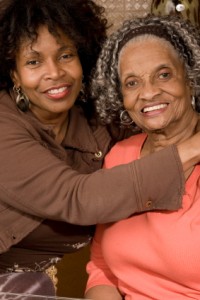>> Any working mother will tell you that achieving work-family balance is hard. I have two boys, ages 11 and 13, and they both have autism – which means just when my husband and I think we have balance, the scale tips. I can’t begin to count how many times one of us has had to leave work to deal with a crisis – everything from violent meltdowns to the time another student bit my son’s ear and I had to take him for stitches.
Any working mother will tell you that achieving work-family balance is hard. I have two boys, ages 11 and 13, and they both have autism – which means just when my husband and I think we have balance, the scale tips. I can’t begin to count how many times one of us has had to leave work to deal with a crisis – everything from violent meltdowns to the time another student bit my son’s ear and I had to take him for stitches.
Fortunately, both my husband and I have worked for bosses and companies who were understanding when we had to run home unexpectedly or asked for a change in work hours so we could meet the boys’ needs. Having that flexibility has made a tremendous difference in our ability to make a living and care for our kids. Our life is often difficult, but we survive, and even thrive, because we have been repeatedly blessed.
Of course, not everyone is as fortunate as we have been. Every day, caregivers (mostly women) struggle to deal with conflicting demands on their time and energy. Whether she is caring for a child with a cold or a chronic condition – or for a parent, grandparent, or spouse – almost every working woman faces these challenges at some point in her life.
The >>Family and Medical Leave Act (FMLA) provides some protection. You can get up to 12 weeks of unpaid leave so you can recover from a serious illness or so you can care for a new baby, a newly adopted child, or a sick child, parent, or spouse. A bill now before the state legislature, the >>Caregiver Relief Act, would expand the FMLA to allow a worker to care for a sibling, grandparent, grandchild, stepparent, or parent-in-law.
Families will need that additional flexibility as the first Baby Boomers reach their 70s in the next few years. In North Carolina, demand for the services that enable older adults to stay in their homes already dramatically outpaces the supply (>>http://states.aarp.org/learn-more-about-aarps-legislative-priorities-with-issue-briefings/) due to a lack of state funding. Baby Boomers’ children and grandchildren – and often, the wives of their children and grandchildren – will need workplace flexibility so they can care for their own families and their elderly relatives while still making a living.
Of course, the leave is unpaid, which is a considerable roadblock for low-wage and hourly workers. Studies show that 40 percent of workers who are eligible for unpaid leave under the FMLA can’t afford to use it (>>http://peoplesworld.org/two-big-city-mayors-oppose-paid-sick-leave/). How do you choose between taking care of yourself or a loved one who is sick and earning the money you need to pay the rent?
In a proposal that might help workers avoid this impossible choice, some state legislators have introduced another bill, Healthy Families & Workplaces/Paid Sick Days (>>http://www.ncleg.net/gascripts/BillLookUp/BillLookUp.pl?Session=2013&BillID=h100&submitButton=Go) that would ensure that most workers get to earn paid leave. Under the bill, even an hourly worker would get one hour of paid sick leave for every 30 hours she works.
Nationally, 81 percent of low-wage workers get no paid sick time (>>http://www.nationalpartnership.org/site/PageServer?pagename=issues_campaigns_paidsickdays). And even if you are lucky enough to get paid sick leave, this issue affects you because others’ lack of leave increases your exposure to sickness. As National Partnership for Women & Families (>>http://www.nationalpartnership.org/site/PageServer?pagename=psd_toolkit_quickfacts) reports:
Adults without paid sick days are 1.5 times more likely than adults with paid sick days to report going to work with a contagious illness like the flu or a viral infection — and risk infecting others. For example, more than three in four food service and hotel workers (78%) don’t have a single paid sick day — and workers in child care centers and nursing homes overwhelmingly lack paid sick days.
Polices like paid sick days and FMLA expansion are especially important during a time like this, when the labor market is weak and unemployment is high. Workers are afraid to take time off for any reason because there is a line of people waiting to take their jobs. That leaves those of us with loved ones who need us – especially if they have significant or chronic needs – constantly worried. It also means the many low-wage workers you come in contact with on a regular basis – the waitress, the grocery clerk, the child-care provider – are likely to come to work even when they have the flu.
Being able to take care of yourself and those you love shouldn’t be a luxury. We all deserve flexibility to balance our work and our caregiving responsibilities.
There are no comments
Add yours